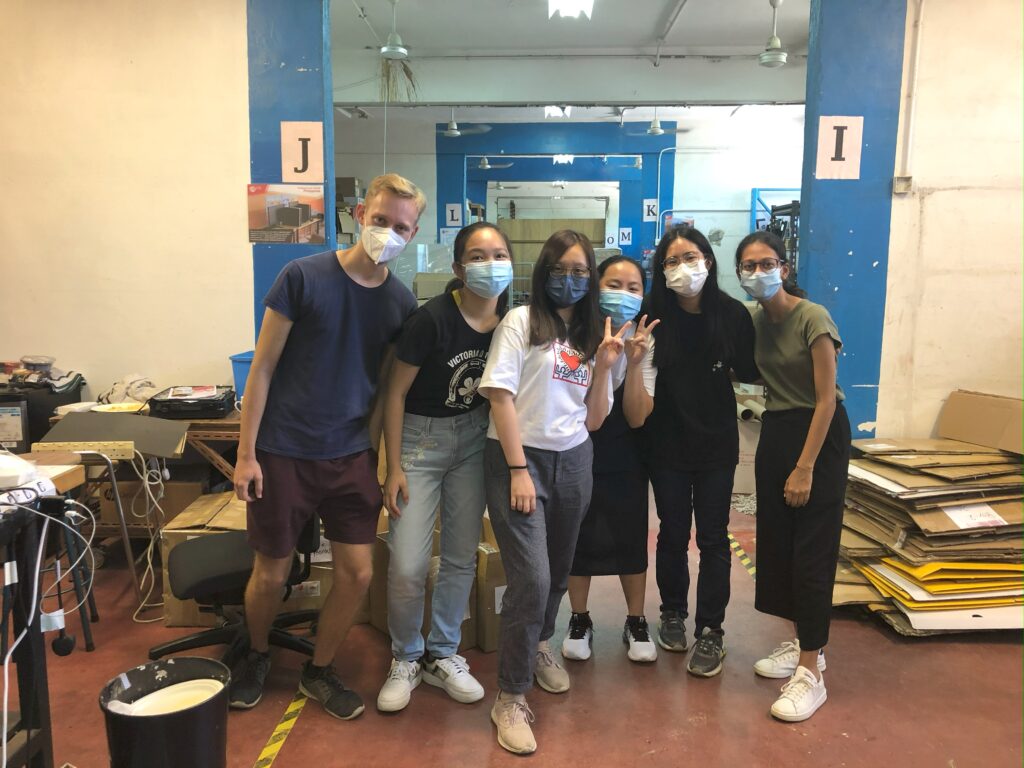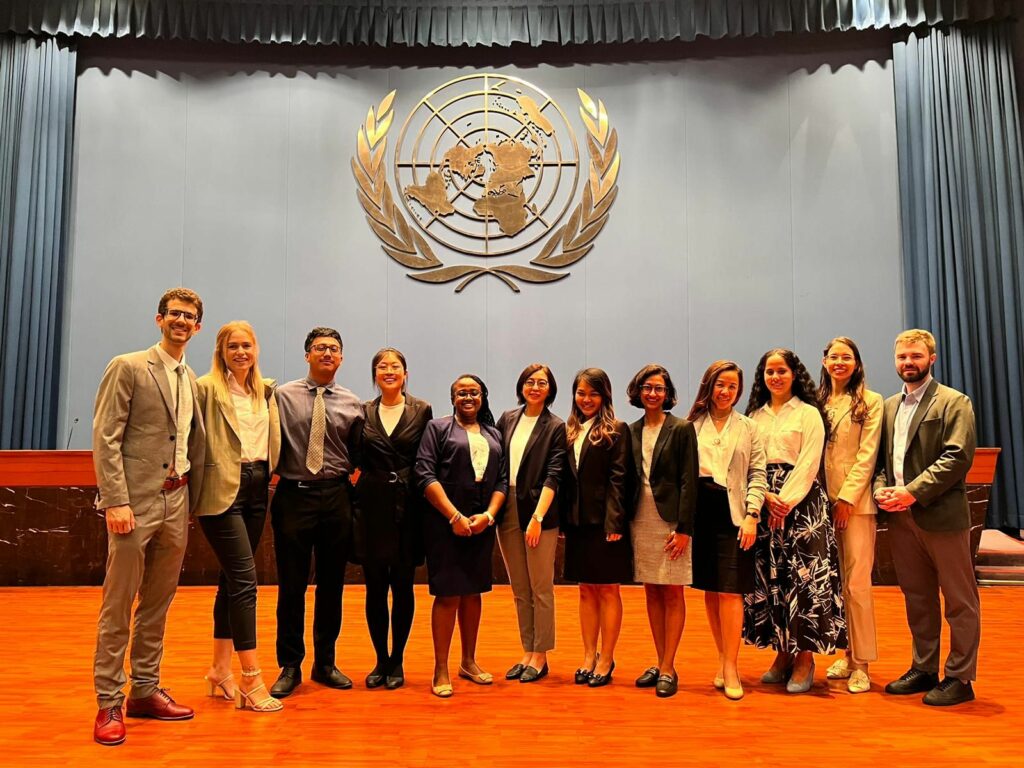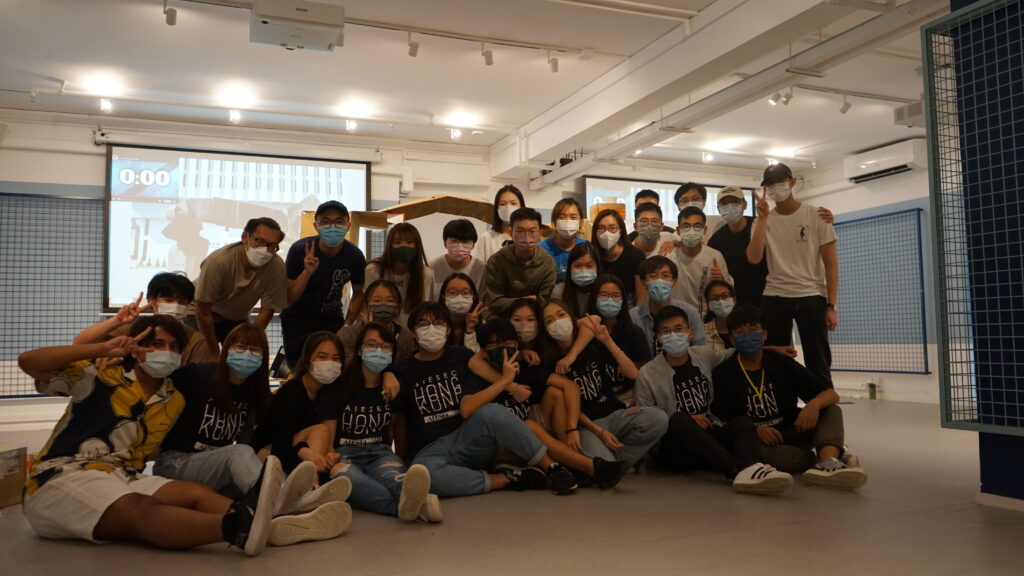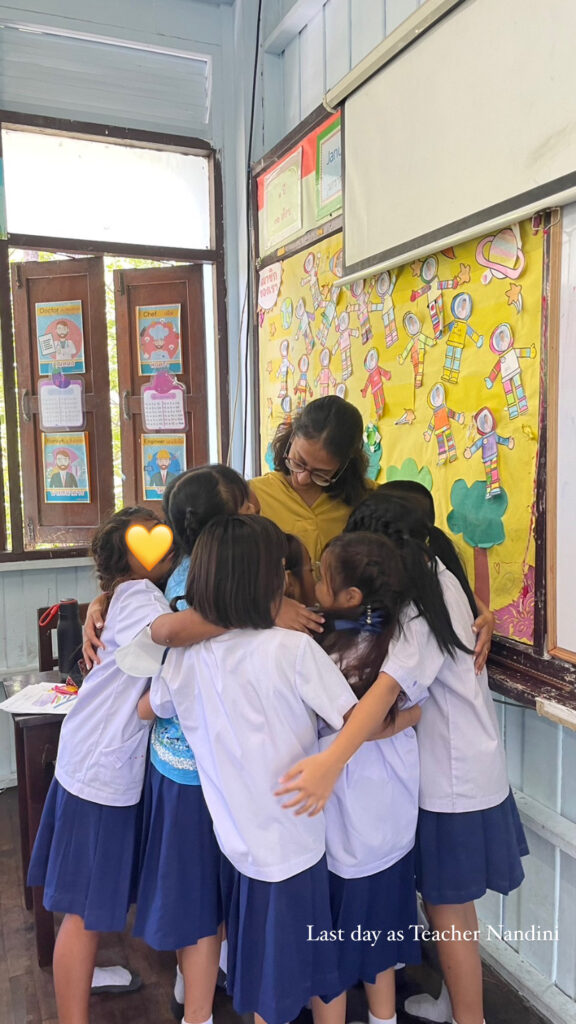Academic Journey and Commitment to Social Change
My name is Nandini Agarwal, and I graduated in 2024–25 with a degree in Sociology from The Chinese University of Hong Kong (CUHK). My academic path has been guided by a passion for amplifying marginalized voices and addressing systemic inequalities embedded in institutions like family, education, and healthcare. CUHK and the Department of Sociology’s (the department) diverse curriculum—spanning gender studies, crime, religion, and sustainability—equipped me with the analytical tools to critically dissect the complexities of social life.
Beyond the classroom, internships and extra-curricular with organizations such as HELP for Domestic Workers, Resolve Foundation, Humanitarian Affairs Asia, AIESEC in CUHK and TedxCUHK deepened my connection to grassroots narratives. These experiences reinforced my belief in education as a catalyst for empowerment, ultimately inspiring me to return to the department as a Junior Research Assistant after graduation.
Transforming Challenges into Opportunities: My Relationship with Statistics and Work as a Junior Research Assistant at the Department
Like many social science students, I initially questioned the role of statistics in sociology. After completing SOCI 2004: Social Statistics, I doubted my aptitude for quantitative methods—a hesitation rooted in societal stereotypes that discourage women from pursuing STEM fields.
This changed when I joined a ground-breaking departmental project focused on fostering statistics literacy through an AI-powered chatbot. The initiative integrates AI-based growth mindset interventions and gender equity strategies to improve social statistics pedagogy. For me, the project became deeply personal. As a woman who once internalized the myth that “women cannot excel in mathematics,” I confronted my own biases by re-learning statistics from scratch. Late nights mastering regression analysis and probability theory not only allowed me to design chatbot exercises but also reshaped my self-perception: Sociology taught me to recognize systemic barriers; this project taught me to dismantle them within myself.
The work expanded beyond numbers. Collaborating on a qualitative research paper, I explored how gender perceptions and growth mindsets intersect in statistics learning, while investigating AI’s potential to mediate these dynamics. The process—marked by relentless drafting, peer feedback, and interdisciplinary reading—culminated in a report that now informs the chatbot’s development.
Being inspired by my tremendous growth, I proactively taught myself R-studio and championed AI tools for inclusive education. Beyond statistics, I now explore how tools like natural language processing can make learning more accessible for Hong Kong’s ethnic minority communities, who often face language barriers, or for specially-abled students who thrive with adaptive technologies. What began as a quest to conquer my own fears has blossomed into a commitment to ensure no one feels excluded from education due to societal stereotypes or systemic gaps.
Insights for Aspiring Sociologists
My journey has taught me the power of resilience and curiosity:
- Find the motivation to learn statistics: To contribute meaningfully in the project, I had to confront my self-doubt and push through the moments of frustration. Anchoring yourself to a clear “why” makes the effort worthwhile.
- Use AI tools like ChatGPT and Deepseek as springboards: While these tools are not flawless, they helped me brainstorm ideas, simplify complex terms, or identify gaps in my
understanding. - Embrace a growth mindset: Replacing “I’m not smart enough” with “I’m not smart enough yet” became my mantra for overcoming self-doubt.
Looking Ahead: AI, Equity, and Education
I plan to pursue an MPhil in Sociology, focusing on how generative AI can empower Hong Kong’s ethnic minorities and specially-abled communities in educational settings. CUHK and the Sociology Department have been a significant backbone in creating the foundational knowledge required for social change and development. From coursework dissecting local gender dynamics to hands-on research, the university taught me to bridge theory and practice.
My journey in sociology has taught me that creating an equitable world requires continuous learning and collaboration, and I am excited to be part of this vital work. Whether through chatbots
democratizing statistics education or advocating for inclusive policies, I am committed to ensuring marginalized voices shape the future of learning.
To the faculty and staff CUHK Sociology Department: Thank you for nurturing my growth as a scholar and changemaker. Your commitment to critical inquiry and innovation continues to inspire my work.
Nandini (LinkedIn)





